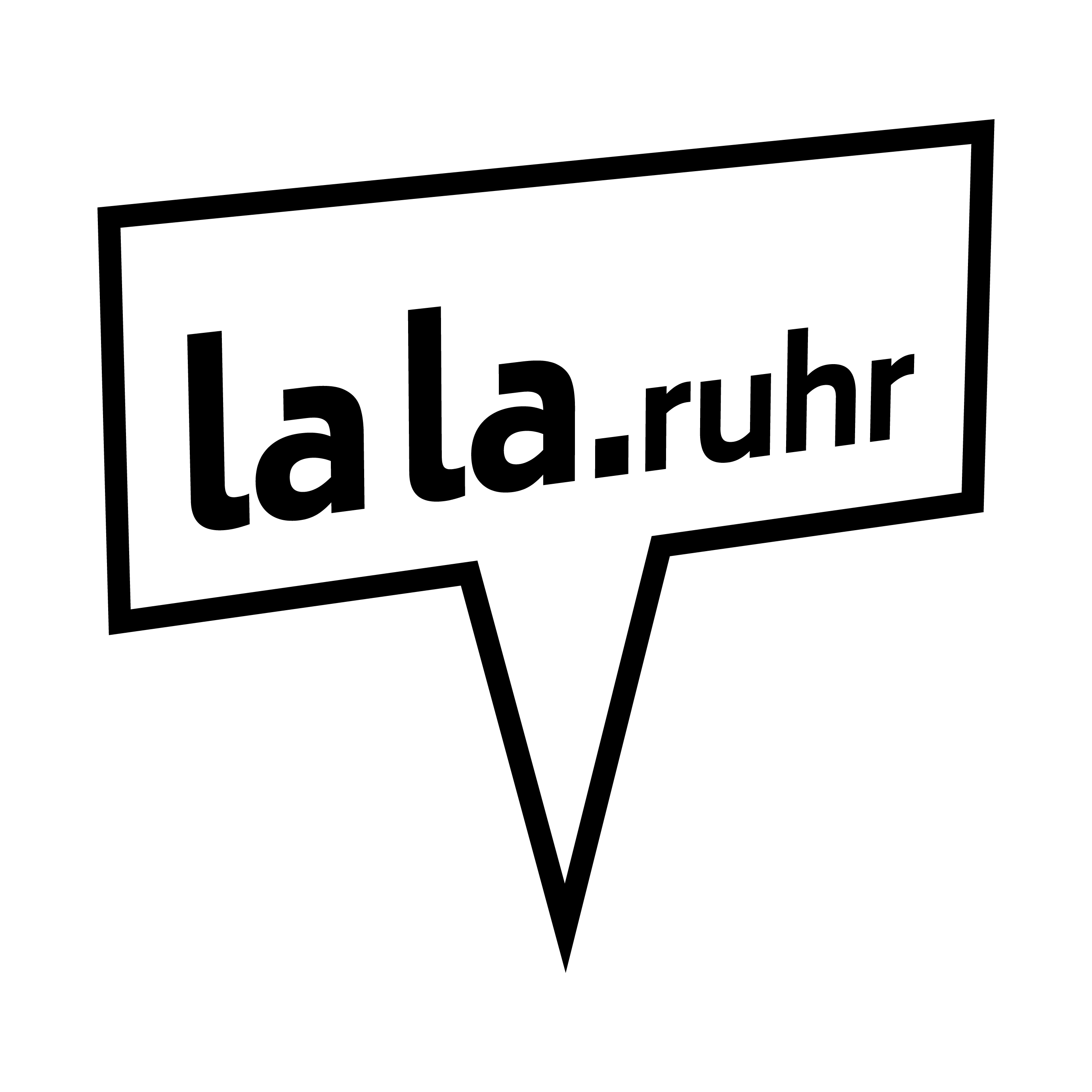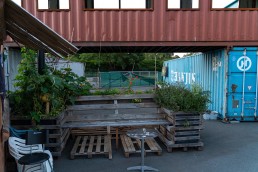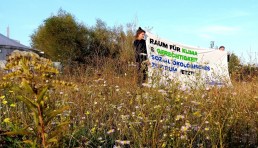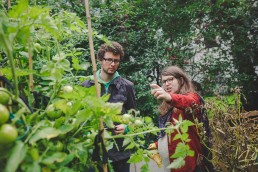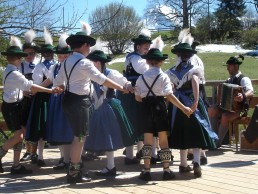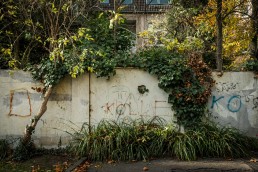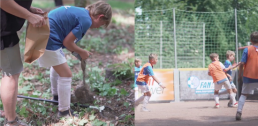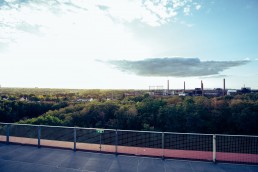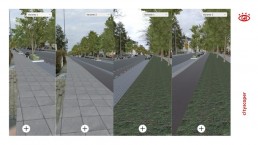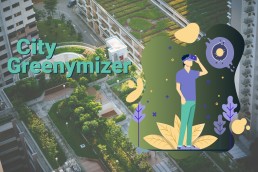digital tools for the participatory design of sustainable cities and green infrastructure
workshop | saturday, 27.02.2021 | 11:00 – 12:30 (Notice: no more spots bookable)
Digital tools have already found a place in urban development and spatial planning for many years. However, with regard to the participatory design of sustainable cities and green infrastructures with citizens, technologies such as AR (augmented reality) and VR (virtual reality) offer new opportunities and challenges. In this workshop, we will explore new approaches in the field of smart cities, digital participation and co-creation and exchange experiences.
Impulse input: StadtLABOR Soest is the first municipal institution in Germany to have built a virtual space in that events can take place and content can be communicated. The workshop will provide an insight into how the virtual StadtLABOR works and how it can be used, as well as other projects that explore the topic of participation in digital urban development. StadtLABOR Soest works at the interface between citizens and administration. It provides impulses in the area of innovation and digitalisation and supports the participation of the urban society in future issues.
Target group: Participants with (initial) experience in the use of digital tools for participatory design of sustainable cities and green infrastructures, e.g. from urban development, spatial planning, innovation labs, municipal administration.
Notice: no more spots bookable
Photo: Robert Bye
urban re creation - new visions for inner-city open spaces
workshop | saturday, 27.02.2021 | 10:30 – 12:00
Moderation: Isabella de Medici & Thomas Dietrich from BDLA NRW
The city centres of the Ruhr metropolises are still dominated by individual traffic. Large traffic axes limit the possibilities of use for new forms of mobility and stay. In the immediate vicinity, there are often pedestrian zones that are less and less able to live up to the former claim of being an attractive shopping zone.
Based on concepts and best practice examples by Julian Altmann (Essen), Dirk Becker (Dortmund) and Stefan Bendiks (Brussels), new approaches for sustainable inner-city spaces will be discussed with the support of the BDLA NRW.
Photo: Julian Altmann
Creative use of brownfields: blueprints for space pioneers
workshop | friday, 26.02.2021 | 19:30 – 21:00
Svenja Noltemeyer from Büro für Möglichkeitsräume and David Coerdt from Pandora2.0 Frank Münter from Transition Town Essen focus on the themes of upcycling and community-designed places for art and culture, education, social-ecological start-ups and urban gardening. They want to encourage people to take responsibility for brownfields, to network projects and people and to promote DIY in city development. Almost 20 years ago, there was already the project idea "land for free" in the Ruhr area, which was never implemented, to experimentally attract creative-entrepreneurial activities and to give a different perspective on the many brownfields in the Ruhr area. Since 2019, Pandora2.0 has been a place where sustainability, reuse and do-it-yourself are lived. They ask the questions: How can we create more such places and overcome the hurdles to make these places possible, and can Pandora2.0 be a blueprint for the creative and modular use of space for Stadtmacher:innen?
The SÖZ as a laboratory for a green (urban) landscape
workshop | friday, 26.02.2021 | 17:30 – 19:00 (Notice: no more spots bookable)
At the interface between the question of social justice and a reaction to the climate crisis, the idea of a social-ecological centre (SÖZ) for Dortmund was born. A space where utopias can be conceived and put into practice. A real laboratory for the city from below, where the future of the city and the city of the future are shaped together in solidarity. Mila Eilee and Florian Heinkel will present the idea and content of the SÖZ and work out with the participants which ecological issues should and can play a role there in the future: What should a SÖZ be able to do in order to strengthen the commitment to the landscape in the Ruhr region? What preconditions must be created for a laboratory? Aspects: Environmental education + exchange / real laboratory for ecological urban development + building / sustainability + Fairtrade
Notice: no more spots bookable
Photo: Initiativkreis SÖZ
cancelled: urban gardening in the ruhr region
workshop | friday, 26.02.2021 | 13:30 – 15:30 (Notice: no more spots bookable)
More urban gardens in the Ruhr area! How does that work?
Jonas Runte and Nils Rehkop from die Urbanisten in Dortmund present various forms of urban gardening and give an overview of the scene in the Ruhr region. They will also discuss the hurdles and challenges faced by people who want to garden together in their neighbourhood. Afterwards, suggestions and ideas will be discussed on how to improve the conditions for the creation and long-term existence of these gardens.
Notice: can´t take place because of illness. The event will be made up on another date.
Photo: Luisa Gehnen/die Urbanisten e.V.
What now? Wanted: A new narrative for the Ruhr region
workshop | saturday, 27.02.2021 | 11:30 - 12:00 | 15:00 - 15:30
How do you explain to a Bavarian what the Ruhr feels like? What should a Berliner think of when she hears Metropole Ruhr? What unites all the Ruhris between Castrop and Hochfeld?
There are plenty of narratives about the Ruhr area - most of them tell of the past. What forward-looking narratives should the Ruhr area shape about itself in the coming decades? The discussion is in full swing. This workshop is a cheeky attempt to develop a cooperative overview in two days: We want to collect, discuss, sort and illustrate together. Of course, we are particularly interested in green narratives about the Ruhr region. Everyone is an expert in this field, because we all use narratives about the Ruhr area all the time - we invite you to join us!
There are two ways to participate in this workshop:
-
- asynchronous: A digital flipchart will be open throughout the festival. Participate whenever it suits you.
Link leads to the platform mural.co (no registration necessary). Use on PC/laptop with mouse (not touchpad) is strongly recommended.
- synchronous: We invite you to participate in guided group work on 4 dates. We will meet via video conference. There will be discussion rounds, whether you participate in one or all rounds is up to you. Friday: 11:30 - 12:00 & 15:00 - 15:30 | Saturday: 11:30 - 12:00 & 15:00 - 15:30.
What now? Wanted: A new narrative for the Ruhr region
workshop | friday, 26.02.2021 | 13:30 - 12:00 | 17:30 - 18:00
What now? Wanted: A new narrative for the Ruhr region
How do you explain to a Bavarian what the Ruhr feels like? What should a Berliner think of when she hears Metropole Ruhr? What unites all the Ruhris between Castrop and Hochfeld?
There are plenty of narratives about the Ruhr area - most of them tell of the past. What forward-looking narratives should the Ruhr area shape about itself in the coming decades? The discussion is in full swing. This workshop is a cheeky attempt to develop a cooperative overview in two days: We want to collect, discuss, sort and illustrate together. Of course, we are particularly interested in green narratives about the Ruhr region. Everyone is an expert in this field, because we all use narratives about the Ruhr area all the time - we invite you to join us!
There are two ways to participate in this workshop:
-
- asynchronous: A digital flipchart will be open throughout the festival. Participate whenever it suits you.
Link leads to the platform mural.co (no registration necessary). Use on PC/laptop with mouse (not touchpad) is strongly recommended.
- synchronous: We invite you to participate in guided group work on 4 dates. We will meet via video conference. There will be discussion rounds, whether you participate in one or all rounds is up to you. Friday: 11:30 - 12:00 & 15:00 - 15:30 | Saturday: 11:30 - 12:00 & 15:00 - 15:30.
2050 - Transformative roads
workshop | saturday, 27.02.2021 | 12:15 – 14:15 (Notice: no more spots bookable)
The year is 2050, and the ongoing climate crisis has prompted politicians to rapidly restrict automobile traffic. Instead, alternative mobility concepts are being promoted, which has reduced traffic congestion on Germany's roads to a minimum.
But now we are facing new challenges: How should we deal with the space we have gained? Can our car-oriented cities be transformed without further ado? Will we soon be able to use our streets as community parks - or will we only have unattractive residual spaces?
In the workshop "2050 - Transformative Streets", we will address these questions and work out solutions together. With its dense road network, the Ruhr region is ideally suited as a research field. In addition, it has already had to undergo considerable changes in the past; from the alluvial landscape to large-scale industry, from large-scale industry to the metropolis - and now from the metropolis to a car-free urban landscape.
The workshop is aimed at visionaries who want to join us on a journey through time to understand future problems as potentials. Experts from the field of urban and environmental planning will provide us with the necessary input to find concrete proposals for situations on our doorstep.
Philipp Valente (Dortmund, 1991) is an architect and graduated with distinction from the Technical University of Munich in 2019. In the same year, he founded the architecture firm Less Plus in Dortmund. He has worked with renowned architecture studios such as Nikken Sekkei (Tokyo, Japan), RCR Arquitectes (Olot, Spain) and Peter Haimerl . Architektur (Munich, Germany). He currently lives and works as Architect in Residence Fellow of the Junge Akademie in Berlin.
Jonathan Schmalöer (Dortmund, 1991) is an architect and photographer. He graduated with distinction from RWTH Aachen University in 2019. Since then he has been working on his own projects.
Notice: no more spots bookable
Soil for the future: the value of fields
workshop | friday, 26.02.2021 | 15:45 – 17:15 (Notice: no more spots bookable)
In the Ruhr region, many tend to assume industrial legacies, but there are also many valuable agriculturally and natural areas. These not only contribute to our regional food supply, but are also an important and also sensitive part of an ecosystem that is also important for urban areas and a valuable resource. How can we protect urban soils, practice agriculture, produce food sustainably and thus also make an important contribution to biodiversity, climate protection and soil conservation?
To answer these questions, we need to recognise the value of our soils, find new ways of farming that protect and enhance our soil and nature as a result. How can these soils make the best possible contribution to a green and sustainable city of the future?
Following inputs from experts, we will work together on specific questions and discuss the results.
with. among others:
Christina Ufer from Emscher Wassertechnik GmbH
Elmar and Miriam Schulte Tigges from the Schulte-Tigges learning farm
Azadeh Farajpour Javazmi from the Research Institute for Application-Oriented Knowledge Processing, Ulm
Tobias Paulert from Ackerhelden
(Notice: no more spots bookable)
Photo: Elmar Schulte-Tigges/Solawi Kümper Heide
workshop-talk urban biodiversity
workshop | friday, 26.02.2021 | 11:00 – 12:00
Together with climate change, the loss of biodiversity is one of the great named crises of our time. Against this background, the UN has declared the Decade of Ecosystem Restoration. What role does urban space play in this? Our cities are developing more and more from the idea of a medieval bulwark to a real living space for their inhabitants. Animals also see an opportunity here and are migrating to the cities. What potential does a city offer as a habitat, how can cities understand and shape themselves as part of an ecosystem? Can biodiversity become an indicator for quality of life and resilience in the city? What contribution do local projects and initiatives make?
Inputss from:
- Thorsten Wiegers, NABU NRW
- Dr. Peter Keil, Network Urban Biodiversity Ruhr
- Nora Scholpp-Roux, Emschergenossenschaft EGLV
- Daniela Rizzi, ICLEI Europe-Office (Freiburg)
- Rolf Morgenstern, Naturfelder Dortmund (ProGIReg)
Photo: Ravi Sejk
kick for good - environmental protection combined with football
workshop | saturday, 27.02.2021 | 14:30 – 16:00
The unifying language of the Ruhr area is football! With bochumbolzt, we combine its enormous integrative and communicative power with the effectiveness of active and local environmental protection. You can find out what this looks like in practice in the first half of the workshop. The second half will be about collective moves towards IGA27. Patrick would like to invite you to help develop bochumbolzt into the regional initiative "ruhrpottbolzt".
Photo: Lukas Hagen
how do we want to deal with the landscape in the ruhr region?
workshop | saturday, 27.02.2021 | 13:00 – 14:15 uhr (Notice: no more spots bookable)
How do we want to deal with the landscape in the Ruhr region? Against the backdrop of interventions in nature, eco-accounts and the balancing act between adequate compensation areas and a shortage of land, a "standardised" landscape is emerging with the landscape in the Ruhr region. In the workshop, we will talk to Frank Bothmann from the Ruhr Regional Association and Ilka Mecklenbrauck from the TU Dortmund University, draw positive pictures of the future and discuss creative settlement planning, innovative design ideas for compensation areas and integrative care approaches for our landscape.
Notice: no more spots bookable
Photo: Ravi Sejk
Green ways, green spaces - new infrastructures for liveable cities
workshop | saturday, 27.02.2021 | 10:00 – 12:00
Can a cycling infrastructure become more than just an offer for a part of the road users? How does it become part of the Green Infrastructure? Does more space for cycling always mean taking something away from others? Or can't we give more quality of life back to everyone by reallocating road space? How do we successfully communicate the reallocation and upgrading of road space with all city residents and users?
The workshop is looking for answers to how a redistribution of road space can be successfully communicated using cycling as a concrete example. In addition to the administration, residents, politicians and citizens' initiatives are also invited to participate so that we can all pull together in the transformation of urban space.
Vision VR with Greenymizer
workshop | saturday, 27.02.2021 | 13:00 – 15:00 (Notice: no more spots bookable)
At the VR festival Places 2020 in the Science Park Gelsenkirchen, a small group with technical, scientific and creative backgrounds under the sponsorship of lala.ruhr and Innovationstreiber devised a prototype for a virtual reality application in a hackathon that is to be further developed. Together, we are united by the vision of better citizen participation and green urban development. How exactly can this be achieved and what requirements should be met? We invite urban planners, developers and interested citizens to contribute their thoughts and ideas based on the prototype and templates and to get involved in the further development.
Notice: no more spots bookable
Participation & responsibility for green railroad stations
workshop | friday, 26.02.2021 | 12:00 – 13:30 uhr session 1 | 14:00 – 15:30 uhr session 2 (Notice: no more spots bookable)
Info: bilingual english – german
Train stations are mostly seen only as spaces used by a wide public getting to work, travelling, interchanging, using it as a meeting point and doing grocery shopping during the late hours. The train station can be also considered as a gate to the city, which gives you the first impression of the city itself.
The aim of the workshop is to collect ideas and experiences on participation processes with focus on train stations:
- - How can travellers / users articulate their wishes / needs?
- - How can they participate to plan a greener train station?
- - How to give them the motivation to be part of the creating process?
- - What wil keep their interest in it over longer period of time?
Discussing these questions together will help us to create the impact of sensibilizing people for their (green) environment. The final outcome should be to create a livable space around the train station through participation processes.
The workshop is the first step of the upcoming project „Liveable City“, hosted by kitev Oberhausen. kitev as a collective has its headquarter in the station tower and tries to promote and create a livable sorrounding. The results could be transferred to other train stations in the Ruhr area.
Notice: no more spots bookable
Photo: Zuzana Jančeková
